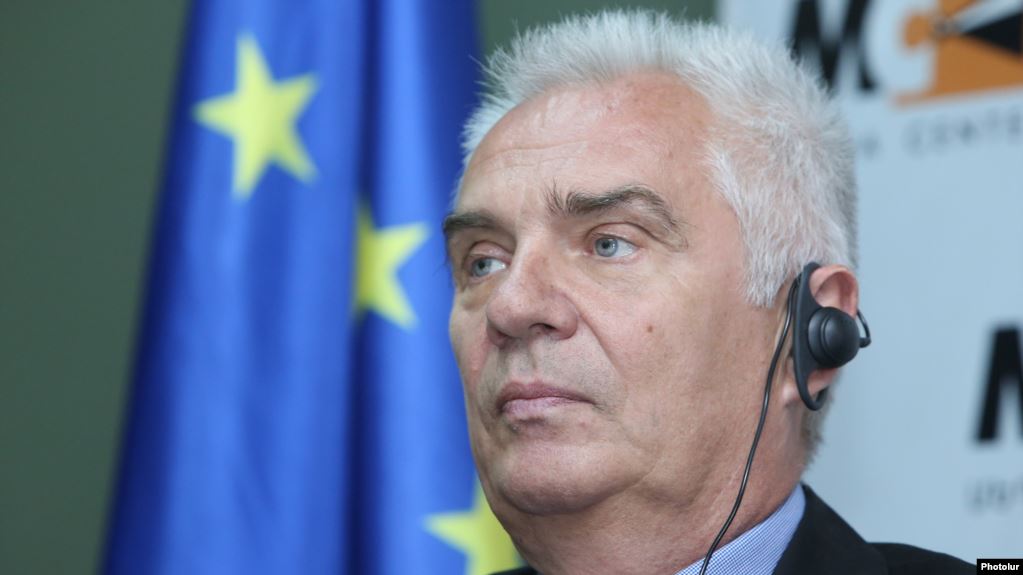Radio Azatutyun. The outgoing head of the European Union Delegation in Yerevan, Piotr Switalski, heaped praise on Armenia’s current government on Monday, saying that it is successfully combatting corruption and pursuing a “responsible” foreign policy.
“I believe that the [government] efforts to fight against corruption and to remove the gray zones from economic activities have been successful,” he told RFE/RL’s Armenian service in a farewell interview. “I think that the most important element in combatting corruption is the political will. The leadership of the country, the government has demonstrated very clearly that they have the political will to combat corruption.”
Switalski said Prime Minister Nikol Pashinian’s government, which took office following last year’s “Velvet Revolution,” is also enacting legislation and creating institutions necessary for a “system of combatting corruption at different levels.”
The fight against corruption, he went on, enjoys strong popular support. “I think that Armenians do not want to go back to the previous times when corruption, nepotism were part of their life. They now understand what life without corruption is much better,” said the diplomat who has headed the EU mission in Yerevan for the last four years.
Read also
Switalski also spoke of a broader change in public mood in Armenia which he said has occurred since the 2018 revolution. “The main difference that I can see when meeting and talking with Armenians is … this feeling of freedom in their eyes,” he explained. “The fear which sometimes in the past was visibly present in their statements and conversations today is gone. They behave like free people and they enjoy this freedom.”
The envoy cautioned, though, that this freedom has also led to increased “hate speech” in the country “We encourage Armenia, including the government, to deploy additional efforts to combat hate speech until it is not too late,” he said without citing concrete examples of such intolerance.
Switalski further reiterated that the EU’s relationship with Armenia is “excellent.” He said Pashinian’s administration is committed to implementing the Comprehensive and Enhanced Partnership Agreement (CEPA) signed by Brussels and the former Armenian government in November 2017.
The 350-page CEPA offers Armenia closer partnership with the EU in return for major political and economic reforms. It was negotiated as a less far-reaching alternative to the Association Agreement which was nearly finalized by the two sides in 2013.
Then President Serzh Sarkisian precluded the signing of that agreement by unexpectedly deciding to make his country part of the Russian-led Eurasian Economic Union (EEU). Armenia’s subsequent accession to the EEU was strongly criticized by some opposition leaders, including Pashinian.
Nevertheless, ever since he swept to power Pashinian has repeatedly ruled out Armenia’s withdrawal from the EEU or the Collective Security Treaty Organization (CSTO), another alliance of ex-Soviet states.
“I believe that Armenian foreign policy is pursued with a sense of responsibility and balance and open horizons,” said Switalski. He commended the current authorities in Yerevan for ensuing “strong continuity” in EU-Armenia ties and trying to be “open to opportunities offered from any direction, including the European direction.”
Photo – Radio Azatutyun
























































